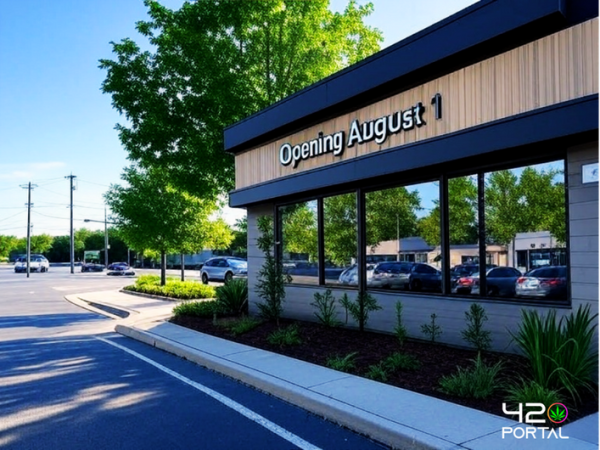Delaware Prepares for Launch of Recreational Marijuana Sales on August 1

07/11/2025
Delaware is on the cusp of a significant transformation in its cannabis landscape, with legal adult-use marijuana sales set to begin on August 1. This development follows the state's legalization of recreational cannabis in 2023 through House Bills 1 and 2, which established a regulated framework modeled after alcohol controls. Adults aged 21 and older will be permitted to possess up to one ounce of marijuana flower, 12 grams of concentrated cannabis, or products containing no more than 750 milligrams of delta-9 THC. However, home cultivation remains strictly prohibited, emphasizing the state's focus on a controlled market to ensure safety and compliance.
The rollout will initially involve converted medical marijuana dispensaries, with 13 such facilities authorized to transition into recreational sales. The Office of the Marijuana Commissioner (OMC) has already conducted a lottery for additional licenses, awarding 125 slots for cultivation, manufacturing, testing, and retail operations in December 2024. These efforts underscore a commitment to social equity, with conversion fees funding grants for applicants from communities historically impacted by the War on Drugs. Public consumption is banned, and driving under the influence continues to be illegal, aligning with regulations designed to protect consumers and reduce illicit markets.
Economically, the new industry is poised to boost state revenues through a 15% excise tax on retail purchases, with funds allocated to bolster schools, infrastructure, and public health. Governor Matt Meyer highlighted the broader implications, stating, "This new industry will generate critical revenue to strengthen our schools, infrastructure, and public health systems, while creating real opportunities for entrepreneurs." He added that the revenue serves as "a powerful tool to invest in the communities most impacted by the war on drugs, addressing past wrongs and ensuring that the benefits of this new market reach every corner of our state."
Marijuana Commissioner Joshua Sanderlin echoed this sentiment, noting, "Our focus is on building a safe, equitable, and accountable marijuana market that delivers real benefits to Delawareans." As implementation advances, the OMC plans to issue more conditional licenses, paving the way for expanded access. This measured approach aims to foster a responsible industry while promoting fairness and community reinvestment, marking a forward-thinking chapter for the First State.
Reference
The rollout will initially involve converted medical marijuana dispensaries, with 13 such facilities authorized to transition into recreational sales. The Office of the Marijuana Commissioner (OMC) has already conducted a lottery for additional licenses, awarding 125 slots for cultivation, manufacturing, testing, and retail operations in December 2024. These efforts underscore a commitment to social equity, with conversion fees funding grants for applicants from communities historically impacted by the War on Drugs. Public consumption is banned, and driving under the influence continues to be illegal, aligning with regulations designed to protect consumers and reduce illicit markets.
Economically, the new industry is poised to boost state revenues through a 15% excise tax on retail purchases, with funds allocated to bolster schools, infrastructure, and public health. Governor Matt Meyer highlighted the broader implications, stating, "This new industry will generate critical revenue to strengthen our schools, infrastructure, and public health systems, while creating real opportunities for entrepreneurs." He added that the revenue serves as "a powerful tool to invest in the communities most impacted by the war on drugs, addressing past wrongs and ensuring that the benefits of this new market reach every corner of our state."
Marijuana Commissioner Joshua Sanderlin echoed this sentiment, noting, "Our focus is on building a safe, equitable, and accountable marijuana market that delivers real benefits to Delawareans." As implementation advances, the OMC plans to issue more conditional licenses, paving the way for expanded access. This measured approach aims to foster a responsible industry while promoting fairness and community reinvestment, marking a forward-thinking chapter for the First State.
Reference







